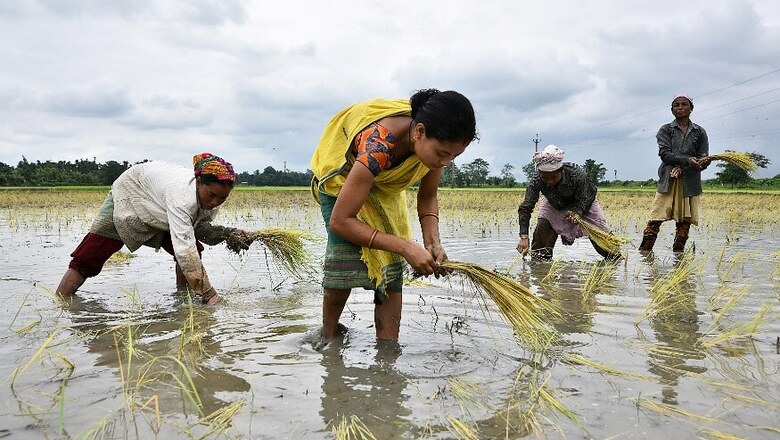
views
New Delhi: The Ministry of Agriculture and Farmers’ Welfare released the revised draft Seeds Bill 2019 in the public domain on October 28, 2019 for views and comments, before introducing it in the upcoming Winter session of the Parliament.
Although the 2019 Bill aims to “provide for regulating the quality of seeds for sale, import and export and to facilitate production and supply of seeds of quality,” it going back on the recommendations that had earlier been taken up in 2010.
The new 2019 draft has removed the clause that constitutes a Compensation Committee to decide the compensation to be given to affected farmers if the seed sold by companies fail to “provide the expected performance”. The proposed change resets to the 2004 version of the Bill asking farmers to compete with industry using another legislation for getting compensated – the Consumer Protection Act, 1986.
In 2010, the Centre proposed amendments to the Bill accepting most of the Standing Committee’s recommendations on the Bill. Back then, it had sought that compensation machinery be included within the Bill itself.
The Seeds Bill 2004 was introduced in the Rajya Sabha during Sharad Pawar’s tenure as Union Minister for Agriculture during the UPA regime. It was intended to update existing legislation “in order to address changes in technology and the structure of the seeds sector,” stated the brief by PRS Legislative Research.
Presently, the quality of certified seeds is regulated by the Seeds Act, 1966, while licensing of the sale of seeds is regulated by the Seeds Control Order, 1983 (under the Essential Commodities Act, 1955). The Protection of Plant Varieties and Farmers’ Rights Act, 2001 (PPVFR Act) protects the intellectual property rights of plant breeders.
Seeds feature in the list of items under the Essential Commodities Act, 1955 which ensures the delivery of certain commodities or products, the hoarding or black-marketing of which may affect normal life.
The new draft also takes a step back from the progress attained in setting a price regulation on sale of seeds. In 2010, following the Standing Committee’s recommendations in 2006, the Centre also proposed price regulation as a protectionist measure for farmers.
But, the 2019 Bill mentions that regulation of sale price of seeds may only be enforced during “emergent situations like scarcity of seeds, abnormal rise in prices, monopolistic pricing or profiteering in respect of a particular variety”.
A ceiling on the price of the seed would protect Indian farmers against five companies that control the entire seed trade across countries including USA’s Mosanto and DuPont. In the absence of one, multinational companies would be in a position to charge high prices arbitrarily.
Furthermore, the new draft also offers weak clauses for offences and punishment made under proposed Bill. For sale, stocking or import of any seed “deemed to be misbranded” or “without a certificate of registration,” the proposed penalties range between Rs 25,000 to Rs 5,00,000 or one-year imprisonment or both.
The amendments to the Bill in 2010 raised the limit on penalties to Rs 50,000 and Rs 10,00,000 or 3 to 12 months of imprisonment, or both.
The Ministry has given civil society time until November 13 to send in comments on the Bill, following which it will be introduced in the Parliament. Earlier, minister of state Parshottam Rupala in September had expressed hope that the Parliament would finally give its nod to the long pending Seeds Bill, along with the Pesticide Management Bill, in the next session beginning November 18.
Previously, Bihar, Gujarat, Maharashtra, Madhya Pradesh, Karnataka, Kerala and Andhra Pradesh have voiced strongly against the Seeds Bill 2010, seeking more powers to regulate seed trade and pricing.















Comments
0 comment